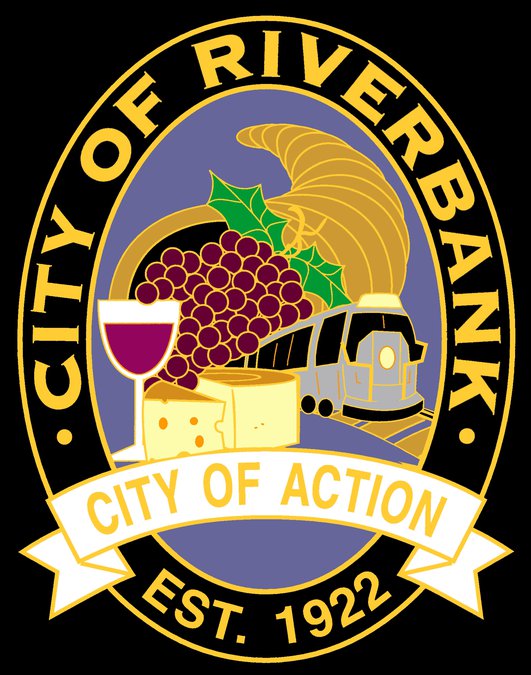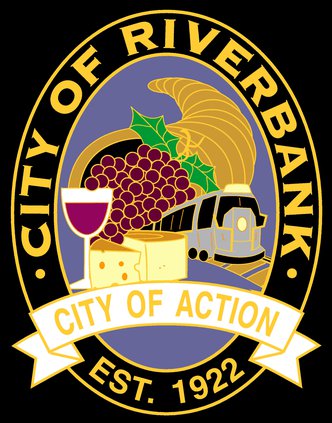Members of the Riverbank City Council have approved the Fiscal Year 2020-2021 Budget and although the revenues are healthy, City Manager Sean Scully said the expenses are catching up. At a council meeting in late June, the motion passed 5 to 0 to approve the budget that was presented by Marisela Garcia, Assistant City Manager/Administrative Services Director. All public agencies are required by State Law to adopt the upcoming fiscal year’s budget by June 30. The fiscal year begins July 1 each year.
“This budget represents some anticipated revenue growth as Riverbank has been able to generally weather the financial storm brought on by COVID,” stated Scully. “With that said, we have challenges due to the fact that our expenses for providing critical services to the community is exceeding our revenue growth. This is not an uncommon problem locally; fortunately we have a variety of exciting residential, commercial and industrial growth opportunities that will continue to lead the City toward long term sustainability. This has to be done parallel to improving upon the services we are providing to our residents currently. Additionally, actions taken over the past handful of budget cycles by the council have led to a generally healthy reserve which provides an additional financial security blanket for the community.”
The overview of the budget included the General Fund, Special Revenue Funds, System Development Fee Funds, Housing Funds, Sewer Enterprise Funds, and Water Enterprise Funds. Garcia noted that there are numerous funds that fall within each one of those categories. In June the council had a budget workshop on the General Fund.
“We had some one time appropriations for capital improvements that were being recommended for inclusion in this final budget as well as some additional staffing for our Sheriff’s department,” stated Garcia during the presentation. “After including those positions and capital improvements we will be looking at ending the reserve on June 30, 2022 of almost 3.5 million or 32 percent. As you recall the minimum that is required by the city council to be held in reserve is a range between 13 percent and 15 percent, obviously we are well in access of that.”
Garcia went over the revenue indicators, anticipated expenditures, and future items to consider. She explained the funds and the dollar amounts in great detail.
Special Revenue Funds are legally restricted to be spent on specific areas or projects she said, like the gas tax fund for street maintenance and street capital projects, the vehicle tow fund and public benefit fund that include the cannabis revenues and expenses.
System Development Fee Funds are legally restricted to be spent on projects identified in the approved System Development Fee program. The fees are paid by new development including residential and commercial. The funding is specifically for infrastructure related to new development.
Housing Funds account for all the current outstanding loans to residents for the First-Time Home-Buyers Program and the Housing Rehabilitation Loan Program. Loan repayments that are received on an annual basis must be used to provide future loans. Loan terms typically are 30 year deferred loans for first-time homebuyer loans and the city has joined the Stanislaus Urban County Consortium for CDBG and Home Funding effective FY 20-21.
The Sewer Enterprise Funds are legally restricted to be spent on sewer-related operating expenses and projects. Revenues are paid by all city customers (residential, commercial, industrial, and new development). Fund types are sewer operating fund day-to-day operations, sewer debt service fund, and sewer capital improvement fund.
Water Enterprise Funds are legally restricted to be spent on water-related items. Revenues are paid by all city customers. The fund types are water operating fund, water capital improvement fund, and water connection fund which is a fee that is paid for new development to connect to the water.
Annual operating budget overview of all the funds has a beginning reserve of $29,308,913; add: Estimated Revenues of $24,536,200; less: estimated expenditures of $28,054,100; ending reserve of $25,803,013 and a structural deficit of $3,517,900.
For more details and specifics the city council meeting of June 22, when the budget was approved, can be viewed on riverbank.org as well as the agenda.
The next Riverbank City Council meeting will be held on Tuesday, July 27.






